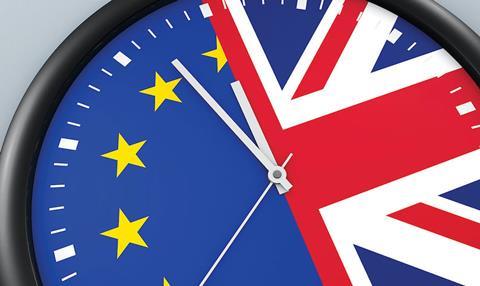The British Meat Processors Association (BMPA) and the Association of Independent Meat Suppliers (AIMS) have welcomed new plans for the post-Brexit agreement on trade with Northern Ireland, but remain cautious about its limitations.

The European Commission has offered a series of arrangements to respond to the difficulties that people in Northern Ireland have been experiencing because of Brexit. The new proposals aim to further facilitate the movement of goods from Great Britain to Northern Ireland.
According to the Commission, the proposals are based on elements raised in the UK's Command Paper published in July 2021. Vice-president of the Commission, Maros Šef?ovi?, said: “I have listened to and engaged with Northern Irish stakeholders. Today's proposals are our genuine response to their concerns."
The College of Commissioners approved four non-papers (i.e. non-legislative texts) covering the following areas:
- A “bespoke solution” for Northern Ireland on food, plant and animal health that the Commission estimates will lead to an 80% reduction in checks
- “Flexible customs formalities” that aim to facilitate the movement of goods from Great Britain to Northern Ireland through a 50% reduction in paperwork
- Improved engagement with stakeholders in Northern Ireland including politicians and business groups
- Uninterrupted security of supply of medicines from Great Britain to Northern Ireland for the long-term.
“A step in the right direction”
Peter Hardwick, trade policy advisor at BMPA, said: “This is no doubt a step in the right direction as it removes the need for export health certification for multiple lines on the same vehicle, which was a major logistical and cost issue. But it will not remove the need for the certifying vet to have to assemble large amounts of supporting information to sign a single certificate.
“Ultimately, if goods being delivered into Northern Ireland from Great Britain are, in effect, in free circulation in the Single Market as there is no regulatory or customs border on the island of Ireland, then it is hard to see how some form of certification can be avoided, and this approach certainly reduces that burden.
“Equally, the reduced number of physical checks at border control posts will also ease trade but it is clear that the EU want much more oversight as is already guaranteed in Article 12 of the Protocol.”
He added: “Agreement that fresh meat preparations such as sausages can continue to be delivered from GB to NI is welcomed.
“The challenge remains that any approach that seeks to completely remove the certification requirement would need to equally guarantee that those goods could not enter the European Union. Thus far, a solution has not been found than can do both of these things.”
“Costly obstruction to trade must be removed”
Tony Goodger, a spokesperson for AIMS, said: “Stating the obvious, nothing has yet been agreed. What we currently see are the proposals and counter proposals from both sides and negotiations are on-going.
“What is important to our members is that any costly obstruction to trade between GB and NI needs to be removed and it is helpful that the current challenges that we are facing in delivering goods to one part of the United Kingdom are now being discussed.”
He continued: “The EU’s ask for '… specific packaging and labelling indicating that the goods are for sale only in the UK, and reinforced monitoring of supply chains' will inevitably add cost which ultimately the consumer will have to pay for.
“Furthermore the EU talks about not 'endangering the integrity of the Single Market' and yet their proposals fail to recognise that the UK should have a borderless single market structure for trade between all four home nations.”
Goodger added that AIMS are looking on with interest at what will be finally agreed.
This story was originally published on a previous version of the Meat Management website and so there may be some missing images and formatting issues.















